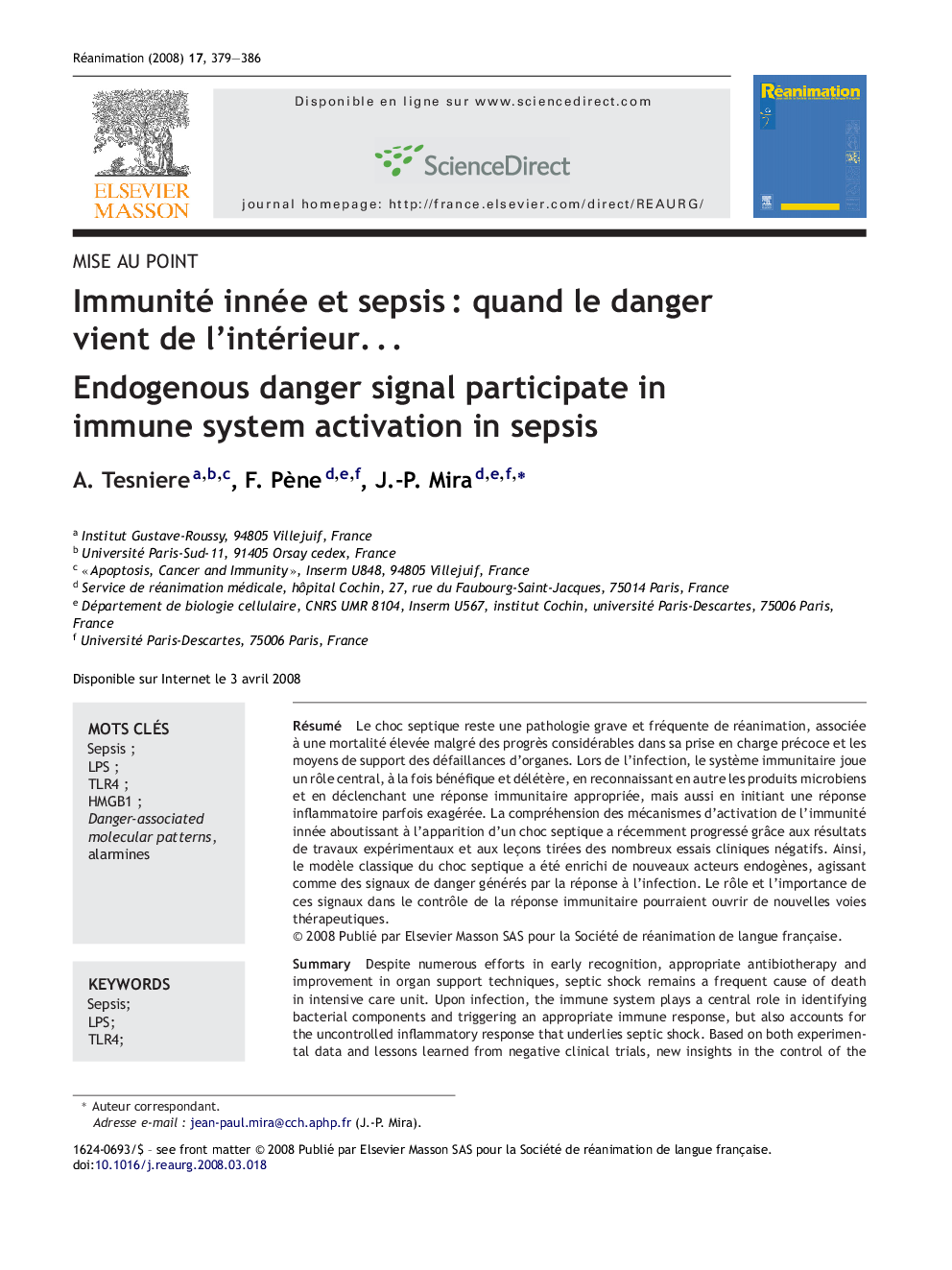| Article ID | Journal | Published Year | Pages | File Type |
|---|---|---|---|---|
| 2613335 | Réanimation | 2008 | 8 Pages |
Abstract
Despite numerous efforts in early recognition, appropriate antibiotherapy and improvement in organ support techniques, septic shock remains a frequent cause of death in intensive care unit. Upon infection, the immune system plays a central role in identifying bacterial components and triggering an appropriate immune response, but also accounts for the uncontrolled inflammatory response that underlies septic shock. Based on both experimental data and lessons learned from negative clinical trials, new insights in the control of the initiation of the immune response have been recently discovered and led to revisit the classical pathophysiological model of septic shock. Indeed, endogenous molecules, produced during host response to aggression and acting as danger signals, have been shown to play a major role in the control of the immune response. These new regulators, integrated into a revisited model of septic shock may represent potential important therapeutic targets.
Related Topics
Health Sciences
Medicine and Dentistry
Emergency Medicine
Authors
A. Tesniere, F. Pène, J.-P. Mira,
